Biden Policies Hurt Hardworking Americans Across USA, One America News and Mark Mix
Biden Policies Hurt Hardworking Americans Across USA, One America News and Mark Mix
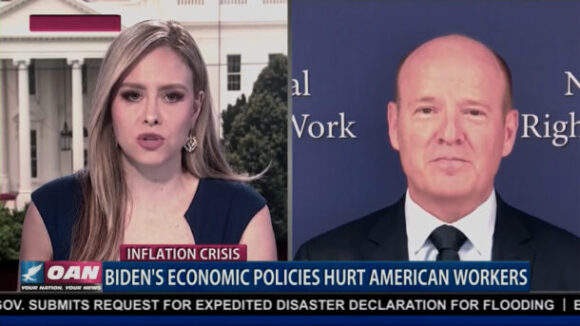
Biden Policies Hurt Hardworking Americans Across USA, One America News and Mark Mix
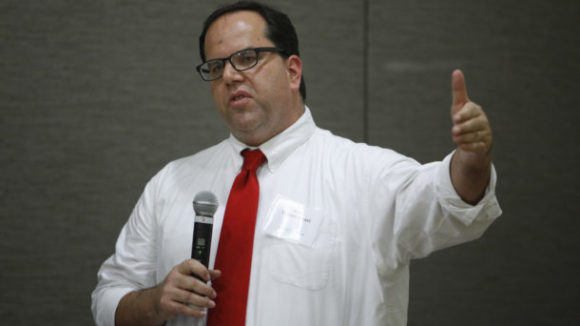
According to California Attorney General Xavier Becerra, statutes empowering government union kingpins like Alex Caputo-Pearl to create state crises serve “important interests of public employers across the nation.” Credit: Katie Falkenberg/Los Angeles Times Does California Attorney General Love Union Don-Created…
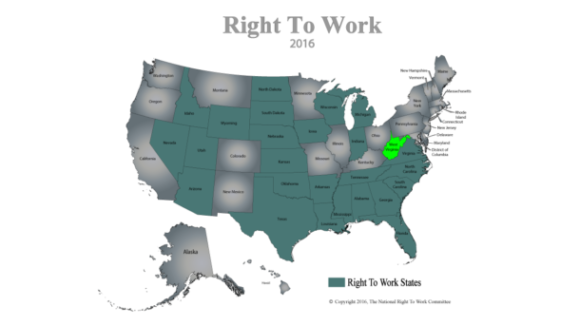
[vsw id=”uLgZBHVNZmg” source=”youtube” width=”625″ height=”344″ autoplay=”yes”] Today I wanted to update you on the latest from West Virginia, which is on the verge of becoming America’s 26th Right to Work state. The fact is, for the last several years, the…
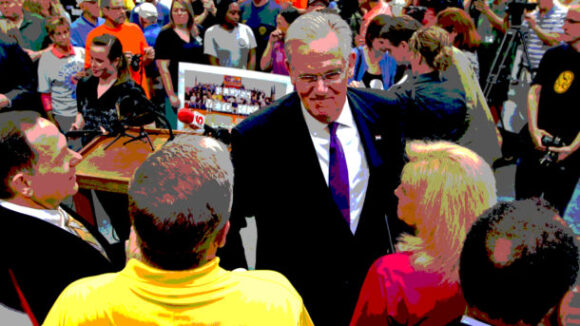
Missouri Governor Jeremiah “Jay” Nixon travels to Big Labor union hall to veto Right to Work freedom supported by a majority of Missourians. Missouri Governor Nixon Celebrates Right to Work Veto and Continuation of Forced Union Dues with Union…
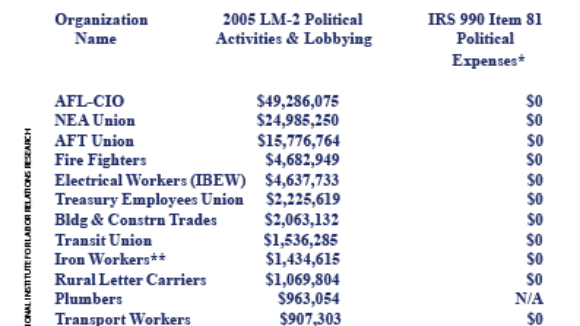
Union Bosses Massively Underreport Their Political Expenditures (source: October 2014 National Right to Work Committee Newsletter) Under the National Labor Relations Act (NLRA) and the Railway Labor Act (RLA), and under many…
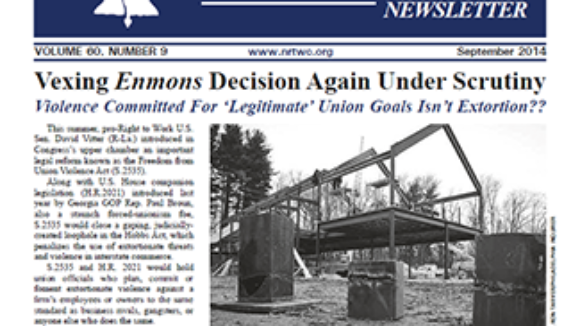
“Time and again, federal prosecutors have amassed extensive evidence that Big Labor bosses have orchestrated, authorized, and/or ratified violence, vandalism and threats for the purpose of securing forced-dues contract clauses or other union demands."
It’s the question that the union bosses don’t want you to ask: Are Workers Choosing Unions, or Are Unions Choosing Them? Rep. Phil Gingrey (R-GA) is asking the question: What if we lived in a country where private employees…
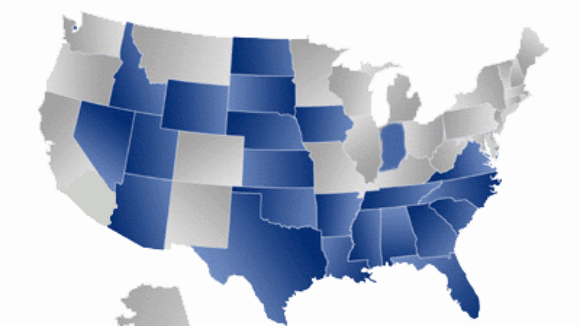
From RealClearPolitics by Michael Barone : “The 22 states with right-to-work laws grew 15 percent in the last decade. The other states grew just 6 percent. The 16 states where collective bargaining with public employees is not…
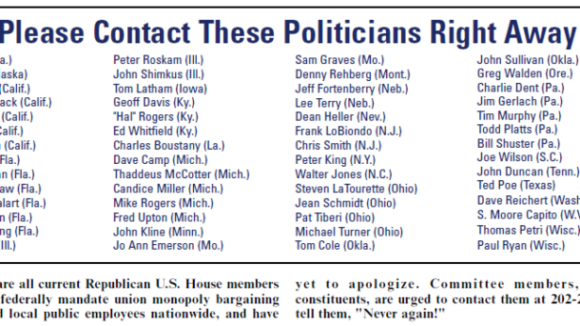
(Source: March 2011 NRTWC Newsletter) Time For Politicians in Both Parties to Own Up to Their Mistakes In late February, many concerned Americans in other states were paying close attention to the fierce, and still unresolved, battle over public-sector union monopoly bargaining in Wisconsin. Many observing the Madison showdown from their homes inwere undoubtedly amazed by what they saw. These five states, like roughly a dozen others, have no statutes on the books empowering government union officials to act as state and local public employees' monopoly-bargaining agents. When elected officials in such states make a judgment that a reform in public-employee compensation packages and work rules is necessary and can be prudently implemented to give taxpayers a better return on their money, they have the power to proceed. It is then up to the voting public to judge whether the reform was a good idea or not. In Wisconsin, however, like in other states which statutorily mandate union monopoly bargaining over public employee pay, benefits, and working conditions, elected officials from the governor on down have far less control over the roughly 50% of public expenditures that go into employee compensation. In the Badger State, half of state and local government employees are unionized. Elected officials and their appointees cannot make any significant changes in the way these employees are compensated or in how they are instructed to do their jobs without government union bosses' approval. Today, millions of Americans whose state and local governments operate free from Big Labor constraints appreciate, after watching the bitter struggle in Wisconsin unfold, better than ever before the importance of keeping union monopolists out of the government workplace. Only Intense Right to Work Lobbying Blocked Monopoly-Bargaining Bill What most freedom-loving Virginians, North Carolinians and Texans probably don't realize is that, just last year, the U.S. Congress came within a hair of taking away their prerogative to decide how their state and local government workplaces are run. At the outset of the 2009-2010 Congress, the votes were there to pass the so-called "Public Safety Employer-Employee Cooperation Act" in both the House and the Senate. Furthermore, President Obama was publicly vowing to sign this legislation as soon as it reached his desk. This measure, more accurately labeled the "Police/Fire Monopoly-Bargaining Bill," would have foisted Wisconsin-style labor relations on state and local public-safety departments in all 50 states.